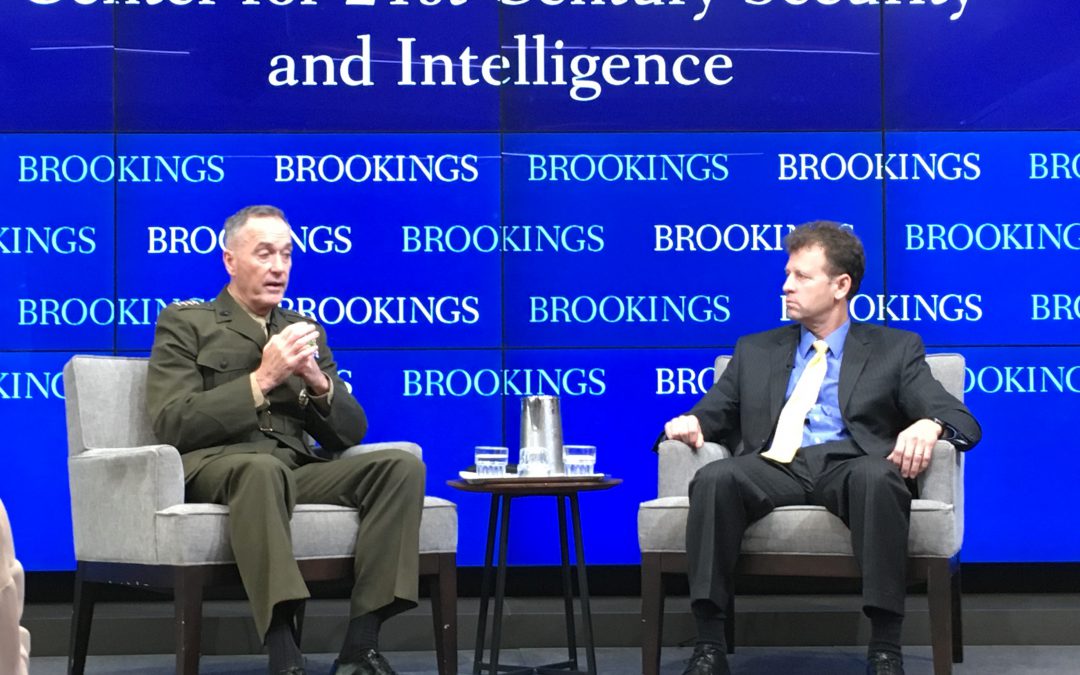WASHINGTON – The Chairman of the Joint Chiefs of Staff, General Joseph F. Dunford Jr., said Thursday he would not divulge details of the new strategy being developed to defeat the Islamic State, but any such military plan would include a political strategy as well.
Dunford, a Marine Corps general, said that the Joint Chiefs would present options to President Trump aimed at countering ISIS as well as other regional players, such as Al-Qaeda, that pose a threat to American national security. Trump issued an executive order on January 28 calling for a new strategy within thirty days.
Speaking to a packed room at the Brookings Institute, Dunford, the nation’s highest-ranking military officer, said that the conflict in Syria was a complex issue, especially due to the involvement of other nation states such as Russia, Iran, Iraq and Turkey. “What we don’t want to do is bring him options that solve one problem only to create a second problem,” he said.
The plan aims to address the larger issue of violent extremism, said the general, which transcends boundaries with as many as 45,000 fighters from more than 120 countries present in Syria and Iraq alone. The idea is to block the fighters and resources from reaching the conflict zone and empower local law enforcement agencies to do the same. “This is a political-military plan,” he said, adding that along with the defeat of ISIS, the United States will look to preserve its long-term interests in the region.
ISIS rose to prominence in 2014, capturing large swathes of land in Syria and Iraq, before moving onto Libya and other countries in the region. Lately, however, it has suffered severe setbacks at the hands of the coalition forces, which include personnel and resources from several countries.
The United States has been involved in launching air strikes against the terror outfit since 2014. The new plan, which will likely be presented to the White House by Defense Secretary James Mattis next week, is intended by Trump to be a comprehensive strategy to defeat IS and to “isolate and delegitimize” it through diplomacy, information operations and cyber strategies.
Asked if the U.S. military was moving toward collaborating with Russia, the general said the National Defense Authorization Act prevented any such overtures. He asserted that the sole aim of the meeting last week with his Russian counterpart, Army General Valery Gerasimov, was to maintain military-to-military contact, which in turn mitigated the risk of miscalculations. “I wouldn’t use the word cooperation,” he said. “I would, like in the context of Syria, say de-confliction.”
Dunford, who has 40 years of active military service, is credited with developing the “four-plus-one” framework that forms the basis of U.S. national security policy.
The “four” represents the countries that the United States considers the highest priority in terms of national security: Russia, China, North Korea and Iran. The “plus-one” is the broader transnational threat posed by terrorist organizations such as the Islamic State and Al-Qaeda.
The idea behind this framework is not that the United States is gearing to fight these countries. Rather, it is to build the “capability of the joint forces to deal with one or more of these threats,” he said.

